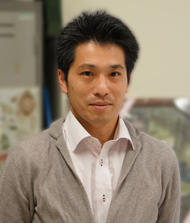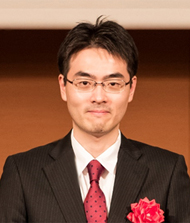
TUAT's competitive research program "TAMAGO" in FY2019
Tokyo University of Agriculture and Technology (TUAT) in Japan advocates “building a world-class research university” through pioneering science, technology, and innovation. From FY2018, a new internal competitive research program, called TAMAGO*, was strategically implemented to create and nurture interdisciplinary research teams that challenge existing paradigms and tackle unsolved scientific issues. Each team comprises researchers from both the Institute of Agriculture and the Institute of Engineering at TUAT. The interdisciplinary research efforts will aim at generating breakthrough discoveries and be supported by external grants. The following 3 research projects were funded by TAMAGO in FY2019.
*: TAMAGO (meaning “egg” in Japanese), Technologically Advanced Research through Marriage of Agriculture and Engineering as Groundbreaking Organization.
Research Projects funded by TAMAGO in FY2019
Creation of next-generation medical tools by combining veterinary medicine and biotechnology
Development of an AI-based method for the analysis of data collected from wildlife
Development of environmentally-friendly functional materials from unutilized biomass waste
Creation of next-generation medical tools by combining veterinary medicine and biotechnology

The team head: Tomoko Yoshino, Ph.D. Professor, Division of Biotechnology and Life Science, Institute of Engineering.
The collaborative research efforts between veterinary researchers and biotechnology researchers focus on creating a new interdisciplinary study that analyzes biological events based on the dynamic developmental transitions of multicellular populations such as tissues and organs. The research team uses three-dimensional “organoids”, mini-organs, that are produced in vitro, to establish a new global standard for cancer models and for clarifying the cell linages from single cells to cancer formation. The biotechnology researchers are world leaders in technology involving cancer analysis on single-cell scale. The veterinary researchers have the unique advantage of direct access to diverse cancer tissues obtained from animals that visit the affiliated veterinary hospital of TUAT. In addition, they have the strength of a rigorous pathological diagnosis. This team’s goals are to elucidate the mechanisms of diseases for which are no efficient treatments available and to develop new therapeutic drugs for these unmet medical needs by enhancing the interdisciplinary study towards animal and human health.
The team members :
Tatsuya Usui, D.V.M., Ph.D. Senior Assistant Professor | Division of Animal Life Science | Institute of Agriculture
Daigo Azakami, D.V.M., Ph.D. Associate Professor | Division of Animal Life Science | Institute of Agriculture
Toshinori Yoshida, D.V.M., Ph.D. Associate Professor | Division of Animal Life Science | Institute of Agriculture
Tsuyoshi Tanaka, Ph.D. Professor | Division of Biotechnology and Life Science | Institute of Engineering
Development of an AI-based method for the analysis of data collected from wildlife

The team head: Shinsuke Koike, Ph.D. Associate Professor, Division of Environment Conservation, Institute of Agriculture.
In Japan, the daily conflict between wildlife and human activities prompts our society to develop a new wildlife management system. In fact, the damage to agriculture and forestry caused by wildlife is extremely severe. Thanks to significant advancements in sensor technology and real-time internet connectivity, large-scale datasets, such as those on wildlife’s biology and behavior can now be gathered. In this interdisciplinary project, the research team will develop AI (Artificial Intelligence)-based data analysis technology to process the large amount information generated through this wildlife monitoring activities. The team is also expected to build mathematical models aimed at better understanding the ecology of wildlife and at extending its application to wildlife management. The team will “visualize the ecology of wildlife” and ultimately predict the wildlife’s activity, with the ultimate goal of generating efficient and labor-saving measures that will prevent conflicts between the declining and aging Japanese population and the wildlife.
The team members :
Munemitsu Akasaka, Ph.D. Associate Professor | Division of Environment Conservation | Institute of Agriculture
Noriko Iwai, Ph.D. Associate Professor | Division of Animal Life Science | Institute of Agriculture
Toshiyuki Kondo, Ph.D. Professor | Division of Advanced Information Technology&Computer Science | Institute of Engineering
Kaori Fujinami, Ph.D. Professor, Division of Advanced Information Technology&Computer Science, Institute of Engineering
Katsuhide Fujita, Ph.D. Associate Professor | Division of Advanced Information Technology&Computer Science | Institute of Engineering
Seiji Hotta, Ph.D. Associate Professor | Division of Advanced Information Technology&Computer Science | Institute of Engineering
Ikuo Mizuuchi, Associate Professor | Division of Advanced Mechanical Systems Engineering | Institute of Engineering
Development of environmentally-friendly functional materials from unutilized biomass waste

The team head: Shinji Kanehashi, Ph.D. Assistant Professor, Division of Applied Chemistry, Institute of Engineering.
It is important to switch from fossil fuels to renewable resources, in view of increasingly pressing global environmental issues, such as global warming, plastic pollution, and depletion of fossil resources. This interdisciplinary project aims to develop environmentally-friendly functional materials (i.e., green products) derived from unutilized biomass wastes present abundantly in Southeast Asia. The primary focus of this project is on cashew nut shells, 2 million tons of which are being discarded annually in the world. The research team will establish a technology for the highly efficient utilization of cashew nut shells and oil derived from the shells, enabling the production of basic chemicals, monomers, functional polymers, and biofuels, etc, from this unutilized biomass. Such a technology will be further extended to other unutilized biomass wastes generated in the major local industries, such as natural rubber, palm, rice, sugar cane industry, etc. Our vision is to establish a circulating society towards the SDGs (Sustainable Development Goals) and to promote science and education in Southeast Asian countries via international research collaboration and exchange program for young students and researchers.
The team members :
Shinya Kajita, Ph.D. Professor | Division of Sciences for Biological System | Institute of Agriculture
Kenji Ogino, Ph.D. Professor | Division of Applied Chemistry | Institute of Engineering
Takeshi Shimomura, Ph.D. Professor | Division of Applied Chemistry | Institute of Engineering
Eika W. Qian, Ph.D. Professor | Division of Applied Chemistry | Institute of Engineering
Eiichi Kawai, Ph.D. Representative | ASEAN Office
Contact
Research Promotion Office
E-mail: wakate[at]cc.tuat.ac.jp (Please replace [at] with @.)

